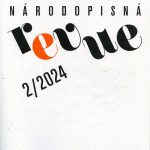
The article deals with the issue of education of children from refugee families. The concept of critical temporalities provides a framework for thinking about these young people's threatened present and future. The aim is to show how the temporalities of different institutions and spaces interact and navigate the life courses of young people at one of the key moments in their lives, namely the moment of choosing high school. The situation is traced with the example of several refugee students who were seeking high school admission in the school year 2022/2023. Article shows how different temporalities enter the choices of subsequent educational careers. Everything happens in the interaction of multiple timescales – institutional, everyday and biographic – in the country of origin and in the country of destination. There are biographical timescales not only of the children, but also of the parents, which determine the future and present of the students. In addition to the institutional timescales of school, the adolescence phase and the temporality of war play a significant role.
The article deals with the belonging of the second generation of Muslims to the Czech space. These young people were born in the Czech Republic, they were socialized here, they have Czech citizenship, but the hegemonic discourse of Czech nationality is so specific that they do not always fit into its image. Their parents came to Czechoslovakia, and later to the Czech Republic in the 1970s and 1990s, mostly for study and work reasons from the Middle East, sub-Saharan Africa or the (post-)Soviet region. For this reason, the repertoire of their identity politics is also multi-layered and diverse. I ask, then, how they negotiate their identity in relation to Czechness and what practices they use to fulfill it in light of their parents' migration background. I developed the data based on semi-structured interviews.
This paper discusses the evidence for “corpse roads” in early modern Britain. Corpse roads were route ways used by funeral parties to transport the deceased from the place of death to the place of final interment. In some cases, some routes took on localised symbolic or folkloric significance, and in a few cases, this is preserved in the present day in contemporary route names, tourism and on modern maps. This paper reviews the evidence for corpse roads, and the methodologies needed to interrogate that evidence. These methodologies are drawn from folklore, ethnology, archaeology and history. The case of one corpse path, in Swaledale in northern England, is presented as a case study.
The article examines currently active traditional hussar associations that are part of reenactment movements in Szeklerland (Romania). The concept of the hussar is no longer used in military contexts but rather in leisure time activities. The heritage-preserving hussars actively participate in the cultural life of Harghita County through spectacular hussar parades and colorful performances and customs, rich in representations and symbols. The hussars also have their own invented traditions, where the intention of nation-building is palpable. It is important for them to live and represent their national identity, set examples, preserve traditions, build communities, and revive and live the Szekler-Hungarian traditions. They also play an active role in reviving the historical equestrian past of the Szekler region and promoting equestrian sports.
In this article, through selected examples of local theatre activity in rural environments in Slovenia, the author describes how and in what way the actors come together to draw material for their vernacular theatre performance. Their own heritage, with which the entire community is familiar, since they grew up and lived with it, thus becomes an inspiration to creators. It is for this reason that people draw on heritage for materialisation through staging. The article shows how, in seeking identity, the materialisation of past events is carried out at different levels of theatre-making. It tries to provide an insight into how performing such an act affects the life of the entire community and how it reflects on a daily basis.
Jubilees and Obituaries
Juraj Zajonc – a Man of Many Talents (Martin Šimša)
Congratulations to Jiřina Todorovová (Jan Šejbl)
Marie Majtánová-Korandová Has Passed Away (Marta Ulrychová)
Exhibitions
Klitzeklein – Erzgebirge Wooden Miniatures and “Little Smokers” in the Museum in Mitterteich (Marta Ulrychová)
Conferences, Seminars
Seminar of the Ethnographic Commission of the Association of Museums and Galleries of the Czech Republic
in Jindřichův Hradec (Petr Číhal)
10th session of the General Assembly of States Parties to the 2003 Convention for the Safeguarding
of the Intangible Cultural Heritage (Jan Blažek)
Reviews
T. Zachar Podolinská – K. Popelková: The Story of Cohesion: On the history of an academic institution (Nikola Balaš)
D. Drápala a kol.: Stopy lidského umu. Předindustriální technické provozy na území někdejšího panství Rožnov [Traces of Human Skill: Pre-Industrial technical heritage of the Rožnov estate] (Martin Novotný)
A. Ďuricová – E. Molnárová (eds): Od textu k prekladu XVII (2. časť) [From Text to Translation XVII (Part 2)] (Hedviga Kubišová)
P. Beneš – I. Bukačová – J. Fák – P. Kodera – V. Podestát: Poklady Mariánské Týnice [Treasures
of Mariánská Týnice] (Marta Ulrychová)
Contents in English
10553
10552
10551
10550
10549